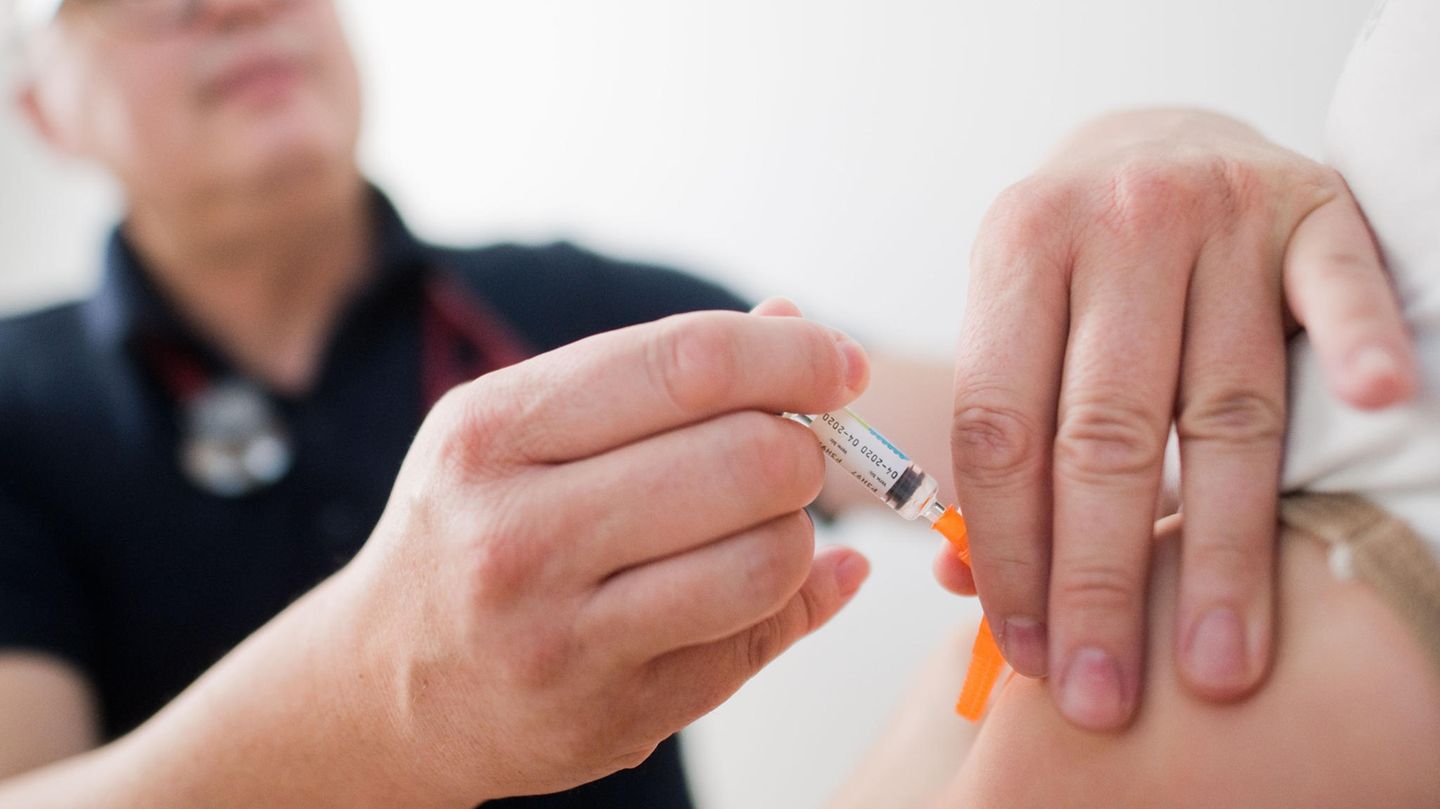The Federal Ministry of Health is putting pressure on: In the future, children and adolescents should also be offered vaccinations. At the meeting of the health ministers of the federal states, the topic is high on the agenda.
The health ministers of the federal states want to advise on corona vaccination offers for young people in the afternoon. According to a proposal by the Federal Ministry of Health, 12 to 17-year-olds in all federal states should receive such an offer. This emerges from a draft resolution.
The European Medicines Agency Ema had approved the Covid-19 vaccine from Biontech / Pfizer for children and adolescents from the age of twelve in May, and the approval for Moderna followed a few days ago. In Germany, the Standing Vaccination Commission (Stiko) has so far only recommended vaccination, despite intense political pressure, primarily to children and adolescents with certain pre-existing conditions such as diabetes or obesity, who have an increased risk of a severe course.
“All countries will now offer vaccinations for 12 to 17-year-olds in the vaccination centers,” writes the ministry in the proposed resolution sent to the federal states. Resident doctors and company doctors who vaccinated relatives could also be involved. In some countries, vaccination campaigns are already planned in schools, for example. In Schleswig-Holstein and Mecklenburg-Western Pomerania, classes start again this Monday after the summer vacation, and in Hamburg on Thursday.
For young adults, the federal states should make “low-threshold offers” in universities, vocational schools and schools, according to the draft resolution for Monday. “This can make a significant contribution to a safer start to teaching and learning after the summer vacation.”
The Baden-Württemberg Minister of Health, Manne Lucha (Greens), advocates vaccinations for young people. There was also approval from Saxony-Anhalt. The incumbent Saxony-Anhalt Minister of Health Petra Grimm-Benne (SPD) told the German Press Agency: “The demand for this is there.” The country is already planning special vaccination campaigns for adolescents. Criticism came from the FDP. “If the health ministers change the vaccination recommendation to the Stiko by, that amounts to a disempowerment,” said Andrew Ullmann, chairman of the FDP in the health committee of the Bundestag, the “Tagesspiegel”.
Who should receive a booster vaccination?
Another topic of the health ministers should be booster vaccinations. For certain groups, the Federal Ministry of Health proposes appropriate vaccinations from September. Particularly in the case of immunocompromised, very old and in need of care, study results indicate reduced or rapidly decreasing protection after vaccination. According to the draft, the federal states should therefore send mobile vaccination teams to care facilities, among other places. People with an immune deficiency or in home care should therefore be offered a booster vaccination by their doctors. These vaccinations should be carried out with one of the two mRNA vaccines, i.e. with the means from Biontech / Pfizer and Moderna.
Bavaria’s Health Minister Klaus Holetschek (CSU) spoke out in favor of a booster vaccination. However, “clear and unbureaucratic guidelines” are needed to determine which group should go first. This requires reliable statements from the federal government and the Standing Vaccination Commission, he said.
Meanwhile, the Green health politician Janosch Dahmen has called for increased awareness campaigns for vaccinations and “everyday solutions”. “Obviously, there is a lack of convincing, target-group-specific information campaigns, more mobility of the vaccine, i.e. vaccination buses, and a corona warning app that informs people about spontaneous vaccination offers in the area,” he told the “Rheinische Post”. “It takes a creative drive and better information offers, good arguments and solutions that are suitable for everyday use”.
The SPD parliamentary group leader Rolf Mützenich did not rule out disadvantages for unvaccinated people. “Private providers can, of course, grant benefits to vaccinated or convalescent people. State agencies must offer their services to everyone equally, although hygiene concepts or, in the future, personal contributions to tests can also result in disadvantages for unvaccinated people,” he told the “Rheinische Post”.




